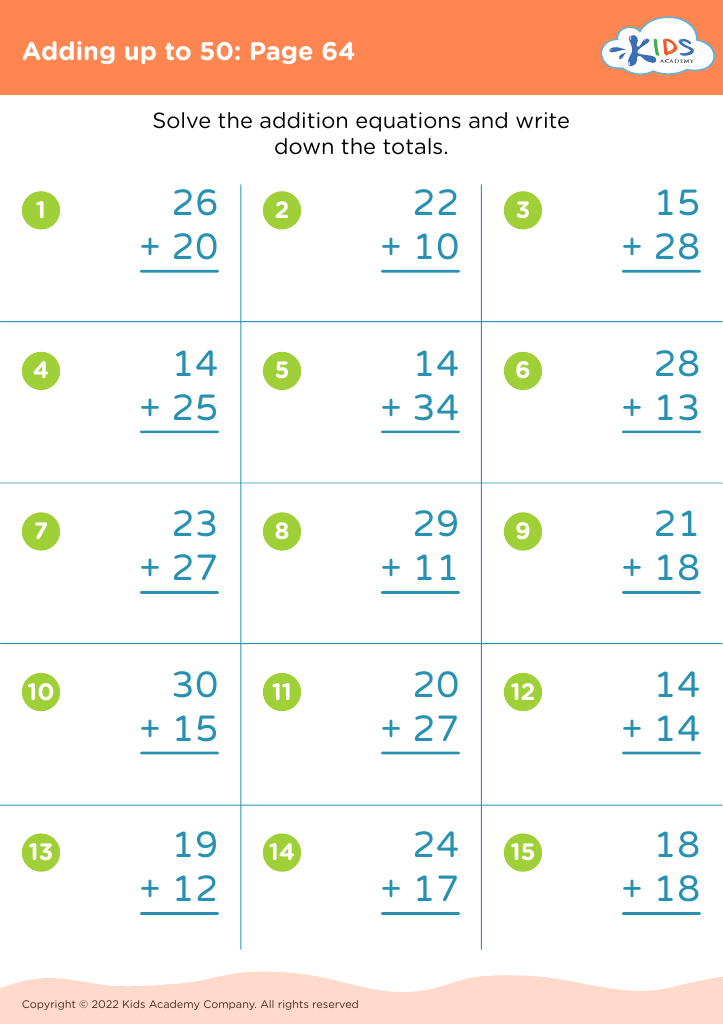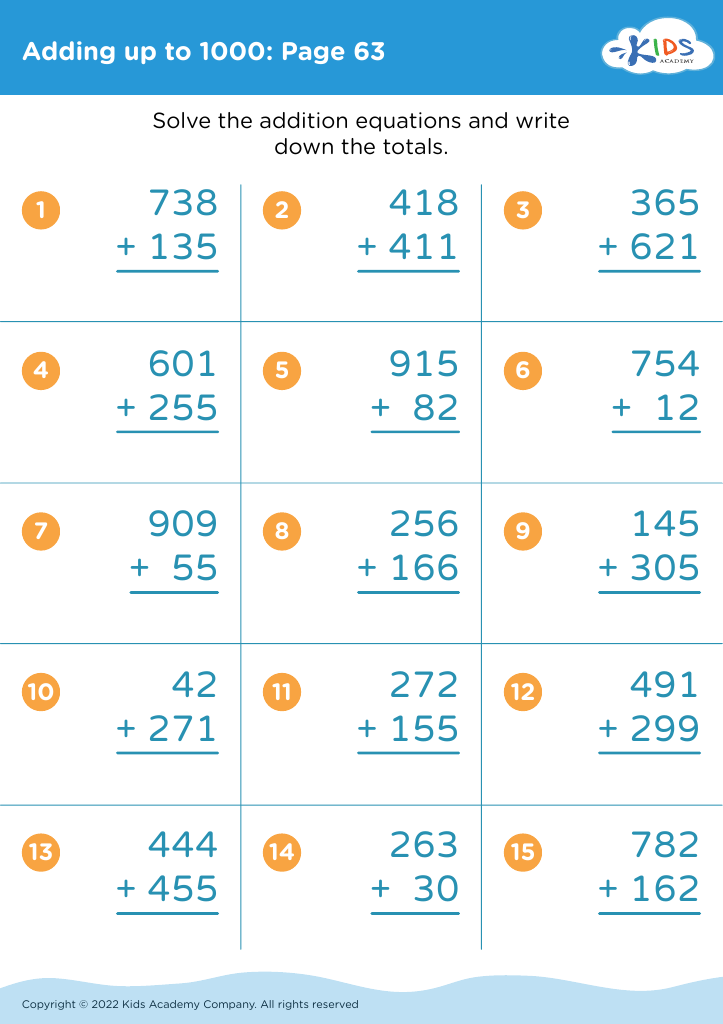Comparing numbers Addition Worksheets for Ages 3-9
4 filtered results
-
From - To
Unlock the potential in young minds with our "Comparing Numbers Addition Worksheets" tailored for ages 3-9! Our engaging, printable worksheets are designed to build a strong mathematical foundation through fun and interactive activities. Children will learn to compare numbers and master addition skills, fostering critical thinking and enhancing their early math abilities. These educational worksheets provide an excellent resource for parents and educators, offering a variety of exercises to ensure comprehensive learning. Help your child or student develop confidence in math with our expertly crafted and easy-to-understand materials from Kids Academy!
Comparing numbers and learning addition are fundamental for children aged 3-9 as these skills lay the foundation for more advanced mathematical concepts. Engaging with these early math skills helps children develop critical thinking and problem-solving abilities. For young learners, understanding how to compare numbers teaches them the basic principles of quantity and size, fostering an early sense of number magnitude that is essential for overall numerical literacy.
Addition, on the other hand, introduces children to the concept of combining quantities, a crucial building block for all arithmetic operations. Mastering addition helps children grasp the idea of 'more’ or 'increase', which not only facilitates their ability to calculate but also enhances their understanding of the world around them in practical situations.
Moreover, early competence in these areas builds confidence and encourages a positive attitude towards mathematics. Encouraging children to explore numbers through playful activities, such as games or hands-on manipulatives, can make learning feel more enjoyable and less intimidating.
For parents and teachers, nurturing these skills during early childhood has long-term benefits, including better academic performance in math and related subjects, improved logical reasoning, and a more robust ability to tackle challenges both within and outside the classroom. Providing a solid mathematical foundation early on equips children with tools that support lifelong learning and adaptability.











.jpg)












